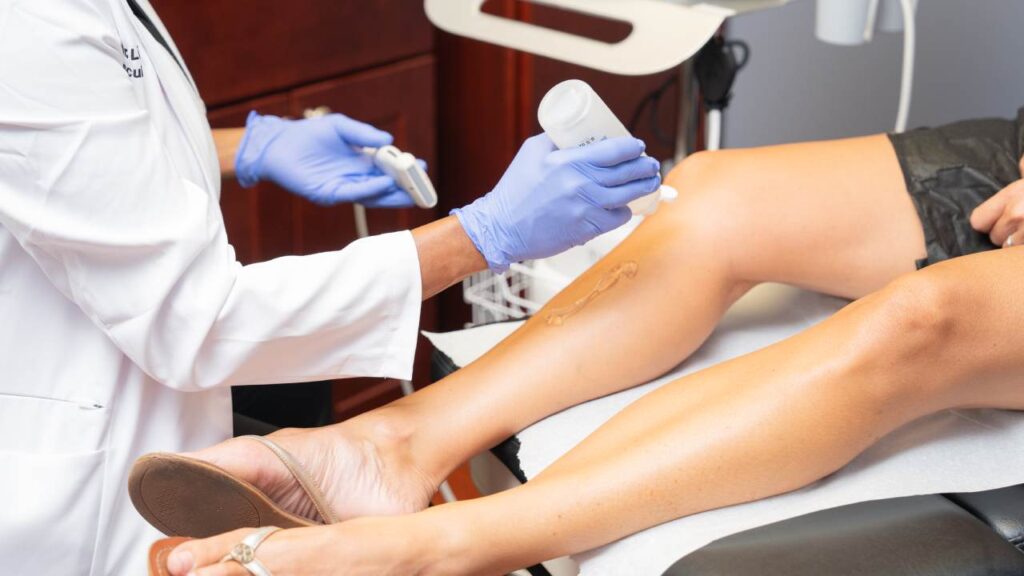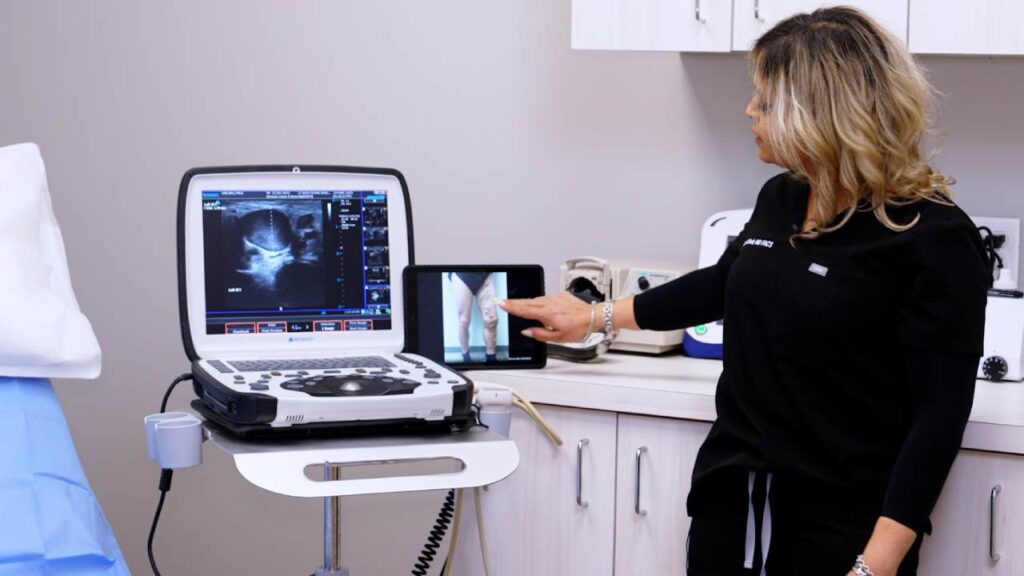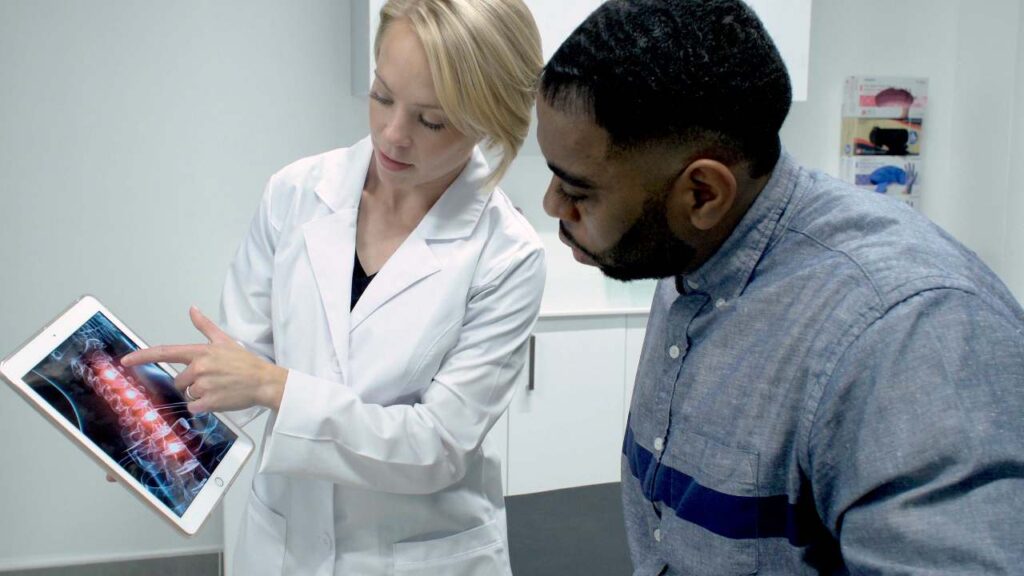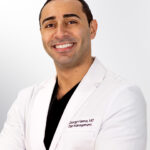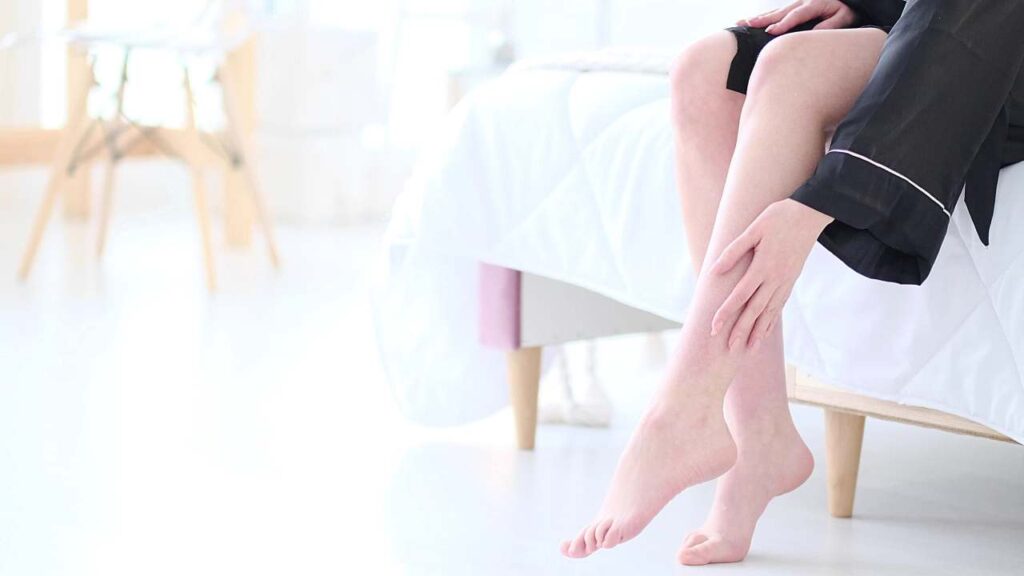The human body is an amalgamation of several complex and intricate systems that work together in cohesion to keep you running day-to-day. One of these systems is the vascular system which comprises a vast network of veins that help carry blood from all organs to the heart. The veins in our legs and face have the most work to do as they are the furthest away from the heart. Veins on the legs have to pump blood against gravity, making their job even tougher.
To prevent blood from flowing back into the legs, veins have valves that close if blood tries to flow backward. But over time, some valves may weaken. When this happens, blood may get collected in the veins, straining against the walls of the veins. This is called Chronic Venous Insufficiency.
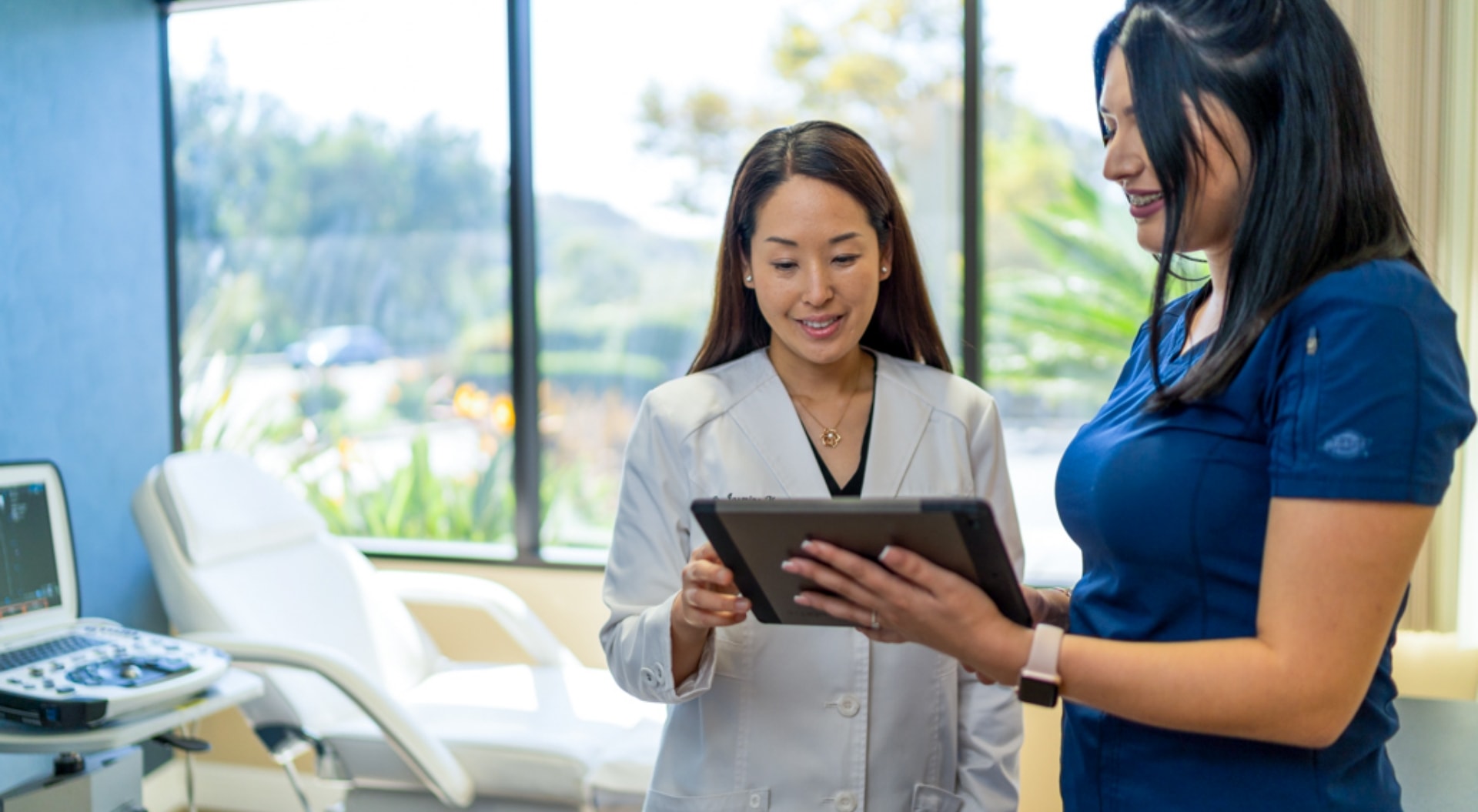
Why do I have CVI?
Chronic Venous Insufficiency is generally a result of either blood clots or varicose veins. Blood clots and varicose veins are caused by a number of controllable and uncontrollable factors. Controllable factors include:
- Smoking
- Obesity
- Poor Diet
- Work or lifestyle involving prolonged standing
- Excessive drinking
- Lack of exercise
Uncontrollable factors include:
- Gender: Women are more likely to develop Chronic Venous Insufficiency.
- Genetics: Family history of Chronic Venous Insufficiency increases the likelihood of also getting CVI.
- Pregnancy: Pregnant women are more likely to get CVI, especially if it is their second or third pregnancy.
Other than their appearance, spider and varicose veins may occur with the following symptoms:
- Heaviness or aching in the legs
- Cramping of muscles in the legs, especially at night
- Worsening leg fatigue
- Swelling in the feet or ankles
- Irritation or itchiness in the affected areas
- Burning sensation over the affected areas
- Dry, itchy, and thin skin over the affected veins
If spider veins and varicose veins appear alongside these symptoms it could indicate Chronic Venous Insufficiency. Book an appointment now with the best vein doctors in the best vein clinic in Southern California.
Can I manage/treat CVI at home?
If you have been diagnosed with CVI, you must seek a doctor’s advice on treatment; CVI does not resolve itself without medical intervention. There are, however, certain things you can take yourself to manage or slow CVI’s progression.
Exercise is good for your overall general health, including for recovering from venous insufficiency. Exercising regularly helps get your heart pumping and keep the blood circulating normally. Exercise that strengthens the calf muscles is especially important because the muscles in your calves must work the most against gravity to help the veins push blood back to the heart. This means that walking, in particular, is very good for venous insufficiency. Doctors will recommend that patients with venous insufficiency walk 30 minutes a day every day if possible, even if it is only to a grocery shop and back.
Obesity is one of the factors that cause Venous Insufficiency. If you already have Venous Insufficiency, losing weight cannot reverse or cure the damage that is already there in your veins, but it can help slow down the progress of the disease and ease some of the symptoms of Venous Insufficiency. If you are overweight, losing extra weight will decrease the pressure on your legs, and make it easier for your leg muscles and veins to pump blood back to the heart. This means that you may feel some relief from symptoms such as leg pain, fatigue, and swelling. But the weight loss must be achieved through healthy means such as proper diet and exercise and be in line with your doctor’s medical advice.
It is also advisable to quit smoking and excessive drinking. Smoking and excessive drinking of alcohol are bad for not only CVI but for your general health and well-being.
How can I cure CVI?
Innovation and massive advances in modern medicine have led to the development of state-of-the-art technology for vein treatment. Vein treatment procedures have become less and less invasive over the last decade. Most procedures now require only local anesthetics, and some don’t require anesthetics at all. Highly trained vein specialists can use a variety of diagnoses and treatment methods that would work best for you. Depending on your specific needs, our doctors will then recommend minimally invasive spider and varicose vein treatment methods such as endovenous laser surgery, VenaSeal, radiofrequency ablation, and sclerotherapy using state-of-the-art technology that works best for you. Because the procedures are all minimally invasive, you can be treated on an outpatient basis and can easily fit the treatment procedure into your schedule with little disruption to your daily life.
In rare cases, however, surgical treatment may become necessary. This is performed by a vascular surgeon. You must see a doctor at the earliest sign of CVI to prevent this.
If you are looking for treatment for CVI, book an appointment at our vein clinic where our experienced vein specialists can provide you the best treatment available in California. We have vein clinics at several locations across the United States, including in San Jose. In San Jose, our vein clinic is located in a beautiful neighborhood near Palo Alto, Sunnydale, and Santa Clara. It is down the block from the Santa Clara Medical Center and the Santana Row Shopping Mall.

